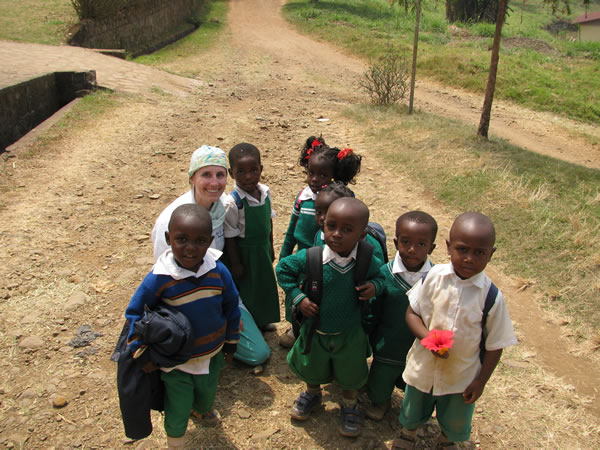
Kari Thompson ’99 knew her chosen career of medicine would serve her well no matter where she went, but it took a trip to Cameroon, Africa, for her to realize just how universal her general surgery skills were.
“Becoming a general surgeon is the most translational specialty,” she says. “Appendicitis in Africa is the same as in the United States and the cure is to cut out the appendix.”
Kari wanted to be a doctor from the age of 3, when her parents gave her a Fisher-Price doctor’s bag for Christmas. She studied humanities at Colorado College and then got her medical degree at the University of California. She had finished three years of her general surgery training when she traveled to Cameroon as part of an international surgical humanitarian trip.
“I worked at a missionary hospital where there is a general surgery training program for African residents,” she says. Kari found herself in a teaching role there as well as a general surgeon. “We operated on newborn babies to patients in their 90s (or so they thought). Our wards were always overflowing and the operating rooms were always busy.”
The hospital was filled with equipment that had been donated, but Kari says she was shocked to see how outdated it was. “The power would go out frequently, and the back-up generator may take up to 10 minutes to start once again. That led to some tense moments when we were operating at night and the room suddenly went dark!”
In Africa, Kari was thrust into a world profoundly different from hers in the United States, where she had been working at the University of California Medical Center in San Diego. In Cameroon, she helped deliver more than 50 babies, performed 100 operations and experienced Cameroonian life. “I was struck by the inability to treat patients with simple surgical problems, but also by the love and dedication families demonstrated for those who were sick,” she says.
She stayed in Africa for two months, and now is in her sixth of seven years of residency in San Diego. She just finished two years of research in minimally invasive surgery, for which she traveled across the U.S. and to Argentina to give presentations at surgical conferences.
Kari says she loves her profession for many reasons. “It is truly an honor to operate on patients who put their complete trust in us, as surgeons, to do the right thing while they are asleep and defenseless. Another highlight is getting to know people of all socioeconomic classes, races, ages, and nationalities.”
Her dream job in medicine: “To work with oncology patients in a multidisciplinary practice, allowing for collaboration with physicians in other fields and giving the patient the best care possible.”